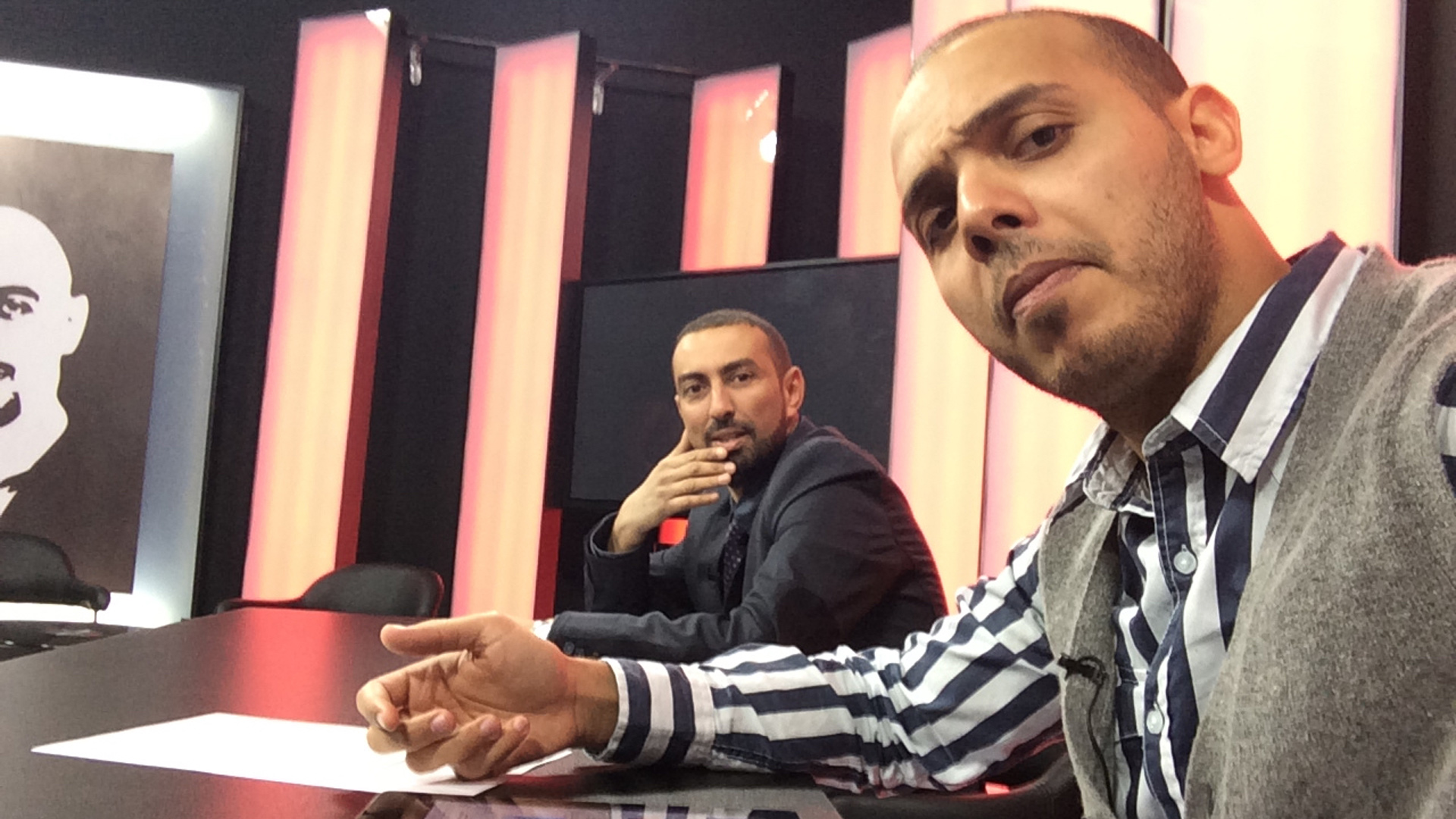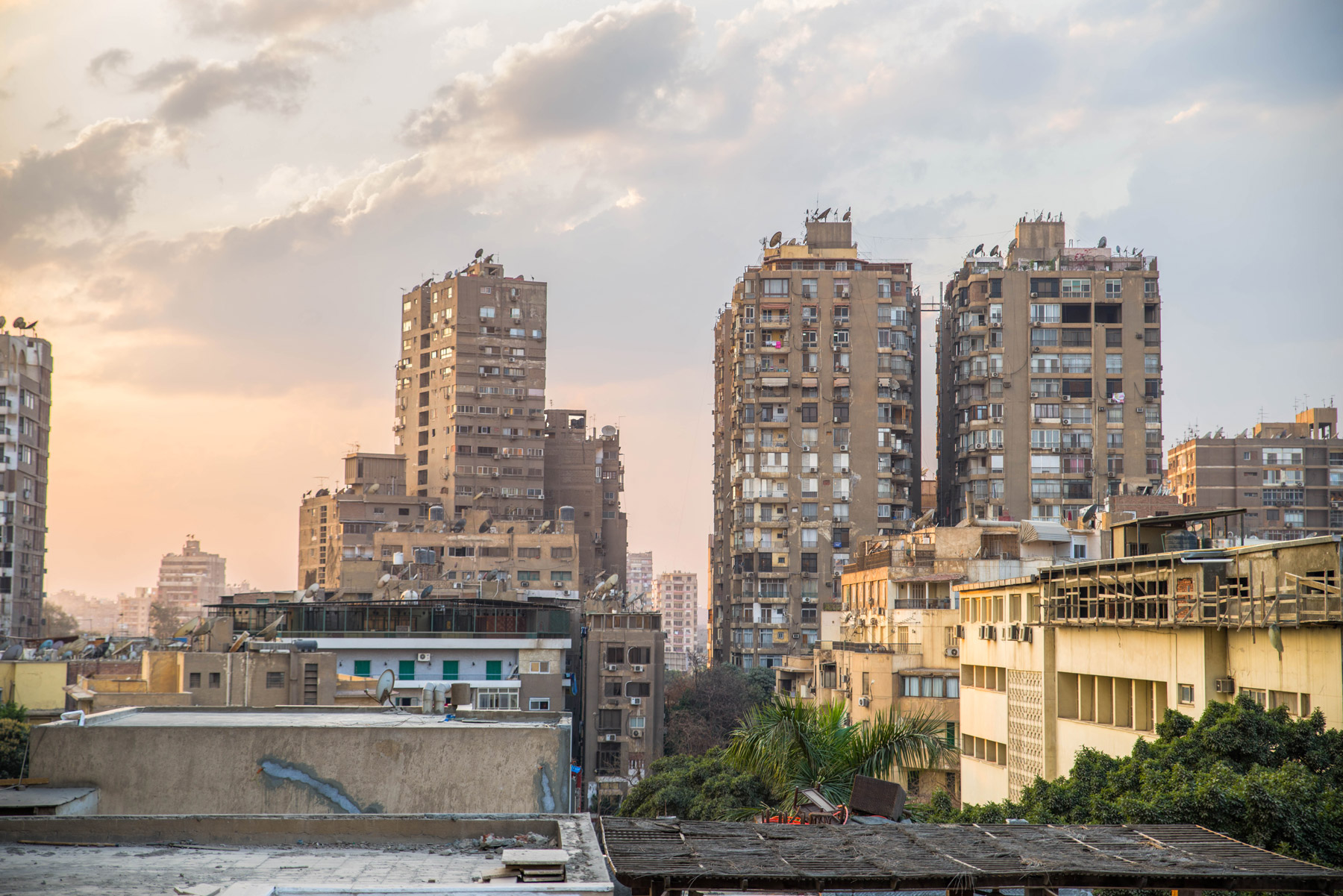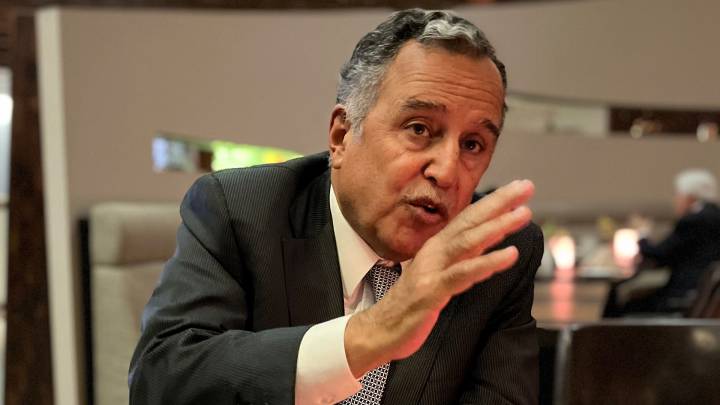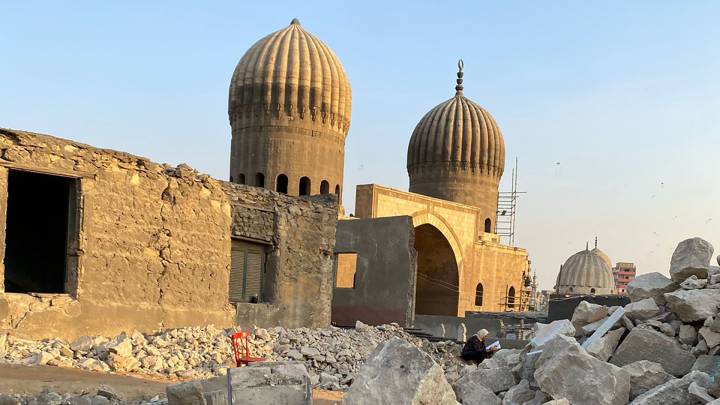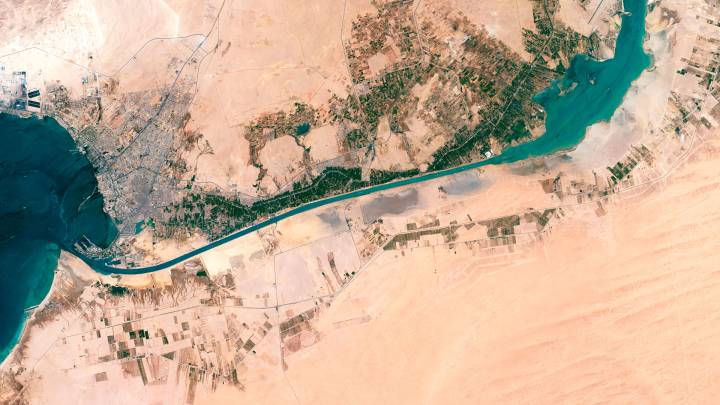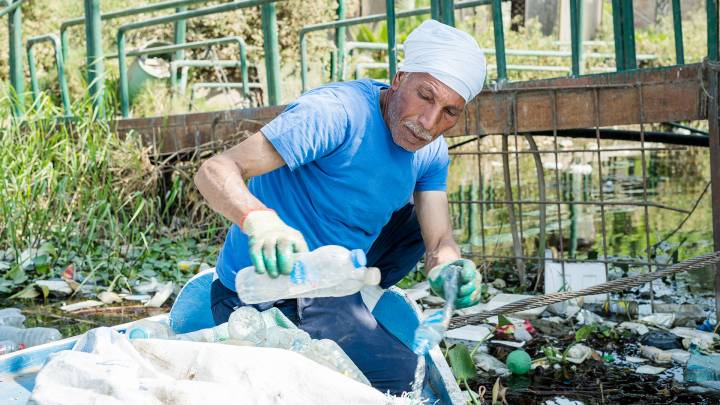Since the revolution in Libya, journalists have been attacked for exposing militia crimes. Several have been murdered, and dozens have fled. But some in exile refuse to stay silent.
Hanan Al Makoub can’t forget the day a Palestinian woman walked into her radio station in Benghazi, Libya’s second largest city. She was clasping the hand of a sobbing boy and holding a medical note by her waist. Her family had lived in Libya for generations, and were now witnessing the bloody civil war that would soon overthrow dictator Muammar Gaddafi.
A rumour can kill an innocent life or destroy a whole village.
It was June 2011, and she was asking Al Makoub for help. Rebel group Libya Hurr (Free Libya) had accused her brother, Fatah Ayash, of spying for Gaddafi. The group abducted him and beat him to death, then left his corpse outside the entrance of a hospital. The medical report stated that Ayash had not died from natural causes. After reading it, Al Makoub realised that the child crying in front of her was the man’s son.
“[The woman] wanted me to do a show about their case,” says Al Makoub, who hosted a programme called Asmaouna (Hear Us) on a local station. “She wanted justice for her brother. But she also needed to prove his innocence, or else her family would be ostracised for generations.”
Without hesitation, Al Makoub investigated the incident. She started by hosting a Libya Hurr spokesperson, Adel Al-Trhouni, on her show. Live on air, he boasted about torturing and killing the Palestinian in the spirit of the revolution. “He was a traitor,” he said mockingly. “What were we supposed to do, bring him flowers and chocolates?”
Outraged by his remarks, many Libyans denounced the killing but failed to spot the alarming trend of rebel human rights abuses. Journalists bear part of the blame, believes Al Makoub. Looking back, she tells me that unbalanced reporting aided a climate of impunity at the time. Dozens of new television and radio stations sprang up, free from the shackles of the regime, but the fervour of the revolution, and a lack of professionalism, resulted in little coverage of rebel war crimes.
Libyans had little warning that the killing of Ayash was a sign of tribulations to come.
Attacking the Messenger
Militias loved the idea of democracy until they were the ones criticised.
One month after Gaddafi had been captured and executed, journalists Mohammad Al-Zway and Ragab Benghuzzi returned from Tunis to Libya’s capital Tripoli. There they co-hosted several programmes for a radio and broadcast station called Al-Aesema (The Capital). Their most popular show was Agenda Sharaa (Street Agenda), where they solicited views from Libyans on the street. In most episodes, people complained that militias were holding the country hostage by refusing to disarm.
“People really liked our show,” Al-Zway tells me in a street café in Egypt’s capital Cairo, where he now lives in exile with his family. “The first year wasn’t dangerous, but it became gradually more difficult to be a reporter in Tripoli.”
“It was the calm before the storm,” Benghuzzi later says, stroking his beard. “Militias loved the idea of democracy until they were the ones criticised.”
A year after the revolution, militias started targeting journalists as part of a greater campaign of violence. Human Rights Watch, an organisation that monitors rights abuses worldwide, documented 91 cases of journalists kidnapped, threatened or assaulted between September 2012 and November 2014.
Despite the danger, Al-Zway and Benghuzzi couldn’t keep silent. The former interviewed people who denounced unlawful killings; the latter mocked militia leaders on air.
The work took its toll on Al-Zway’s personal life. Following each assassination, his wife begged him to keep silent, thinking he was a target. Her fears were confirmed when an Islamist group raided Al-Aesema in March 2014 – fortunately, he wasn’t there.
Salafists kept smearing him on social media, accusing him of receiving foreign funds to spread secularism in the country, a dangerous accusation in Libya. Frightened for his life, he went to Tunis with his family two months later, then moved to Cairo in late 2014.
“The militia that raided our programme was taking orders from the Grand Mufti of Libya,” he says. “Many journalists were getting killed. I felt I could be next.”
Militias had killed eight journalists by summer 2014, and now they were after Benghuzzi. Fed up with his satire, they first warned him to stop speaking on air after attacking him on the street in late 2013. But rather than self-censor, he kept ridiculing them until he received a call in August 2014. A friend of his from Libyan Dawn, a now disbanded alliance of Islamist militias, told him to escape right away.
“He said that militants would be at my house in an hour to kill me,” recalls Benghuzzi. “I didn’t have time to pack anything. I just left my house and flew to Tunisia the same day.”
Exile
There was no turning back after Al Makoub stepped off the plane. She had just escaped Libya after militants tortured a man they thought she knew. Right before she left, on New Year’s Eve 2013, she tracked him down. They met in his house; the man still struggled to move about because of his injuries. Islamic extremists, he warned, wanted her dead. They had two reasons to kill her: she was an outspoken journalist and a liberal woman.
Fearing for her life, she ran home to grab her passport and boarded a flight to Cairo the same day. During her first year in exile, she suffered from depression. Her hair was falling out, and she hardly spoke to anyone. She couldn’t find work or aid her city of Benghazi as it descended into civil war.
More than three years later, Reporters Without Borders, a non-profit that defends press freedom globally, recognised her bravery in exposing militia crimes. “I was honoured,” Al Makoub tells me. “But I was also confused. I felt I was being rewarded for fleeing my country.”
That same year, she received a call from Libyan radio station Al-Waset (The Middle) in Cairo. They offered her a job as an assistant radio producer. By then Al-Zway was working there too. They now each have their own programme.
Al-Makoub’s show Shayiea (Rumour) tells stories of Libyans attacked or threatened based on lies. A rumour can kill an innocent life or destroy a whole village, she says. Zway’s program is called 67 – the percentage of Libya’s population between the ages of 15 and 64. His show hosts people who have overcome the challenges of chaos and war.
Both programmes are broadcast live on Facebook and across 11 cities in Libya. But in Benghazi, Al-Waset was banned after criticising Khalifa Haftar’s self-styled Libyan National Army (LNA) for committing war crimes. The LNA claims to have liberated Benghazi last spring, capturing it from Islamist militias.
Al Makoub acknowledges the irony. Since the revolution, competing militias have fought in the name of freedom while cracking down on dissent.
Laying Low
Two years ago, Benghuzzi moved to Cairo to run a network called NTV and hired Al-Zway as deputy manager. The duo thought they could criticise whomever they wanted, but after four months Egyptian authorities closed the station without explanation. Benghuzzi suspects that a minister in Libya’s Beyda government, which Egypt supports, contacted the authorities after being ridiculed on air.
The two colleagues have since gone their separate ways. Al-Zway works with Al-Waset, while Benghuzzi hosts a show on pro-Gaddafi network Libya24. With Gaddafi supporters sidelined, Bunghuzzi can criticise all of Libya’s main players. “In my eyes, the supporters of the old regime are more democratic than the people fighting for power today,” he tells me.
While that may be so, red lines exist. None of the Libyan networks based in Cairo criticise Egypt’s interference in Libya’s domestic politics or its military actions. Al-Waset didn’t investigate the latest air strikes on the besieged Libyan city of Derna on October 31, which killed 20 civilians and injured 23.
Mada Masr, arguably Egypt’s only independent outlet (its website is blocked in the country), reported that the Egyptian Air Force was behind the strike, citing an Egyptian government source. Egypt’s Foreign Ministry denied responsibility and condemned the strikes. “We don’t touch the problems in Egypt, nor report on any crimes it has committed in Libya,” says Al Makoub.
Compounding the challenges, neither Al Makoub, Al-Zway nor Benghuzzi have press permits, despite attempts to get them. Last September, Al-Zway was arrested walking home from the studio with camera gear. He was put in prison for a night, and his equipment was confiscated. “If I’m caught working as a journalist again, I’ll be deported,” he says.
Fearing the authorities, Al-Zway and Al Makoub never interview people outside Al-Waset. Benghuzzi doesn’t even venture downtown, preferring to keep a low profile in the suburbs. Despite the circumstances, the three of them are lucky to be alive; many of their peers are missing or dead.
“Journalists in Libya are trapped,” says Al Makoub. “We are stuck between the sledgehammers of those who call us unbelievers and those who call us traitors.”

